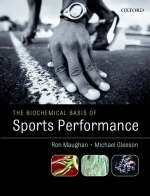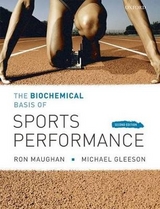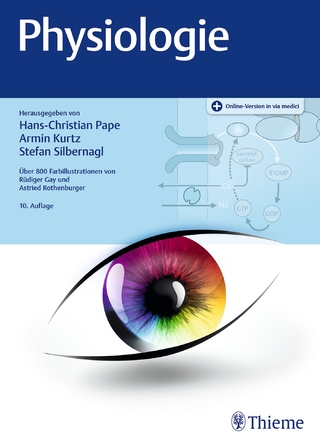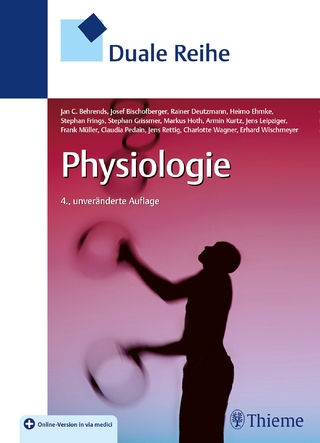
The Biochemical Basis of Sports Performance
Oxford University Press (Verlag)
978-0-19-926924-2 (ISBN)
- Titel erscheint in neuer Auflage
- Artikel merken
Some understanding of the biochemistry of exercise is fundamental to any study of the factors that contribute to sports performance. It is the physical, chemical and biochemical properties of cells and tissues that determine the physiological responses to exercise, and yet the teaching of exercise biochemistry is poorly developed compared with exercise physiology. Where the subject is taught at all, the student often finds the approach somewhat daunting, with its focus on thermodynamics, chemical structures and metabolic pathways. Many students find the subject difficult, when it should not be so. The aim of this book is to introduce the student of sports science or exercise physiology to the biochemical processes that underpin exercise performance and the adaptations that occur with training. The focus is on skeletal muscle metabolism and the provision of energy for working muscles. We have tried in this book to introduce the principles of exercise biochemistry in a context that is immediately relevant to the student of sports science. This has meant abandoning the traditional approach of working through the main classes of biomolecules and the major metabolic pathways.Instead, we have tackled the subject by considering the biochemical processes involved in energy provision for different sports events and the way in which limitations in the energy supply can cause fatigue and thus limit performance.
Recovery from exercise is important for athletes who train and compete with only a limited rest period, and the biochemical processes that influence recovery and restoration of performance capacity are also addressed in this book.The biochemical processes that fuel the different activities that contribute to sport are the focus of this book, together with the changes that occur with training and the role of diet in providing the necessary fuels. Sporting talent is a rare gift inherited by the elite athlete from his or her parents, and a brief description of the basis of heredity is included. Online Resource Centre: Will provide multiple choice questions for each chapter and illustrations from the book will be available to download from the Online Resource Centre at www.oup.com/uk/booksites/biosciences/
Michael Gleeson is Professor of Exercise Biochemistry, and Ronald Maughan is Professor of Human Physiology, both at the School of Sport and Exercise Sciences, Loughborough University, UK.
PREFACE; INTRODUCTION; Setting the scene; THE WEIGHTLIFTER; Muscle structure and function; Proteins - structural and functional characteristics; Muscle proteins as enzymes; Energy needs - role of ATP; The dietary protein requirement and actions of anabolic steroids; Nutritional supplements that are claimed to boost muscle mass and strength gain; THE SPRINTER; Power output; Sustained energy needs; Phosphocreatine and ATP resynthesis; Causes of fatigue; Recovery after exercise; Creatine supplements; THE MIDDLE DISTANCE RUNNER; Sustained power; Energy supply from anaerobic glycolysis; Role of lactic acid; Oxidative breakdown of carbohydrate; Fatigue; Recovery processes; Glycogen synthesis; Alkalinisers to limit acidosis and boost performance; THE ENDURANCE ATHLETE; Glycogen depletion; Carbohydrate supply from blood glucose; Role of the liver; Fat as a fuel; Fatigue and recovery; The brain and central fatigue; Dietary carbohydrate requirements; Benefits of carbohydrate and fluid intake during prolonged exercise; Caffeine as an ergogenic aid; Effect of diet on substrate availability and factors involved in fatigue; Free radicals and antioxidants; THE GAMES PLAYER; Intermittent activity patterns; Contribution of different energy sources; Limitations to performance; Creatine supplements to improve intermittent exercise performance; SPORTING TALENT; Factors determining success; Genetics; DNA, protein synthesis and inheritance; Examples: muscle fibre types; TRAINING FOR STRENGTH, SPEED AND ENDURANCE; Adaptations to different types of training; Limitations to adaptation; Fatigue and overtraining; Meeting the energy requirements for training; Dietary influences on training adaptations
| Erscheint lt. Verlag | 5.2.2004 |
|---|---|
| Zusatzinfo | numerous figures |
| Verlagsort | Oxford |
| Sprache | englisch |
| Maße | 189 x 246 mm |
| Gewicht | 516 g |
| Themenwelt | Medizin / Pharmazie ► Medizinische Fachgebiete ► Sportmedizin |
| Studium ► 1. Studienabschnitt (Vorklinik) ► Physiologie | |
| Naturwissenschaften ► Biologie ► Biochemie | |
| Naturwissenschaften ► Biologie ► Humanbiologie | |
| ISBN-10 | 0-19-926924-6 / 0199269246 |
| ISBN-13 | 978-0-19-926924-2 / 9780199269242 |
| Zustand | Neuware |
| Informationen gemäß Produktsicherheitsverordnung (GPSR) | |
| Haben Sie eine Frage zum Produkt? |
aus dem Bereich



